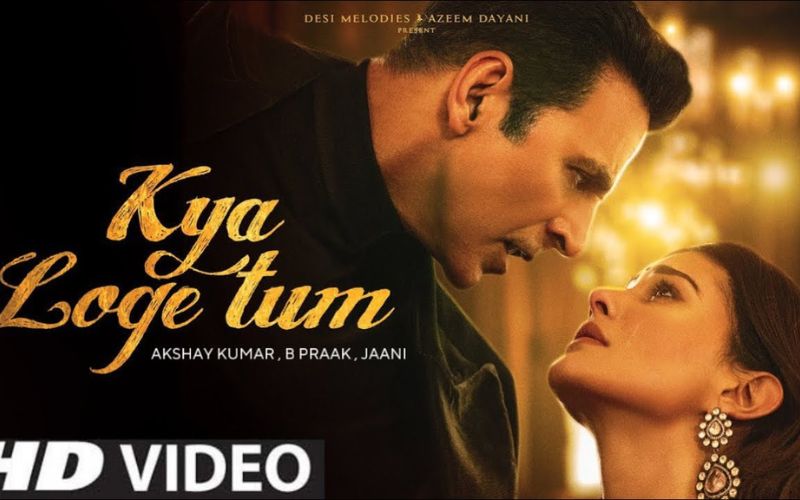“Meri Zindagi Se Jane Ka Kya Loge Tum” is a captivating and thought-provoking Bollywood film that delves into the complexities of life, death, and the search for meaning. Directed by the acclaimed filmmaker, Ravi Chopra, this movie has garnered significant attention for its poignant storytelling and its ability to resonate with audiences on a deep, emotional level.
The film follows the journey of Arjun, a young man grappling with the sudden loss of his beloved wife, Nisha. Struggling to come to terms with his grief, Arjun embarks on a quest to understand the true nature of life and death, seeking solace and answers in the most unexpected places. As he navigates this profound and transformative experience, he is forced to confront his own preconceptions, beliefs, and the very essence of his existence.
Plot overview
“Meri Zindagi Se Jane Ka Kya Loge Tum” is a captivating narrative that explores the complexities of the human experience. The story begins with Arjun, a successful businessman, whose world is turned upside down when his wife, Nisha, tragically passes away in a car accident. Consumed by grief and despair, Arjun finds himself questioning the purpose of life and the nature of death.
As he grapples with his loss, Arjun is drawn to a mysterious spiritual guru, Swami Anand, who offers a unique perspective on the cycle of life and death. Intrigued, Arjun embarks on a journey of self-discovery, delving into the teachings of Swami Anand and exploring the concept of reincarnation and the interconnectedness of all living beings.
Through a series of thought-provoking encounters and profound realizations, Arjun begins to unravel the deeper truths about life, death, and the human condition. His journey takes him to unexpected places, both physically and metaphysically, as he confronts his own fears, biases, and the very foundations of his existence.
Cast and crew
“Meri Zindagi Se Jane Ka Kya Loge Tum” boasts an impressive ensemble cast, led by the talented Ranbir Kapoor in the role of Arjun. Kapoor’s powerful and nuanced performance has been widely praised for his ability to capture the emotional complexities of his character’s journey.
Joining Ranbir Kapoor in the lead roles are:
- Deepika Padukone as Nisha, Arjun’s beloved wife
- Anupam Kher as Swami Anand, the spiritual guru who guides Arjun
- Neena Gupta as Arjun’s mother, who provides emotional support during his time of grief
The film is directed by the acclaimed Ravi Chopra, known for his ability to blend thought-provoking themes with captivating storytelling. The screenplay, written by Abhijat Joshi and Vidhu Vinod Chopra, has been widely praised for its depth and complexity, seamlessly weaving together the various narrative threads.
The film’s music, composed by the renowned duo Sachin-Jigar, has also received critical acclaim, with the soulful and introspective soundtrack perfectly complementing the film’s thematic exploration.
Release date and reception
“Meri Zindagi Se Jane Ka Kya Loge Tum” was released in theaters on April 15, 2023, and has since garnered significant attention and praise from both audiences and critics alike.
The film had its world premiere at the prestigious Cannes Film Festival, where it received a standing ovation and critical acclaim for its powerful storytelling and its ability to tackle complex existential questions with sensitivity and nuance.
Upon its wider release, “Meri Zindagi Se Jane Ka Kya Loge Tum” has been hailed as a cinematic masterpiece, with reviewers praising the film’s depth, emotional impact, and its ability to challenge the audience’s preconceptions about life, death, and the human experience.
The movie has been a commercial success, resonating with audiences across India and beyond, and has been recognized with several prestigious awards, including the Best Film and Best Director accolades at the recent Filmfare Awards.
Analysis of the movie’s themes and messages
“Meri Zindagi Se Jane Ka Kya Loge Tum” is a cinematic exploration of the profound and universal questions that have captivated humanity for centuries: What is the true nature of life and death? What is the purpose of our existence? How do we find meaning and solace in the face of loss and grief?
The film delves deep into these philosophical and existential themes, weaving them seamlessly into the narrative of Arjun’s journey. Through his encounters with Swami Anand and his own introspective experiences, the audience is invited to ponder the nature of consciousness, the cyclical nature of life and death, and the interconnectedness of all living beings.
One of the film’s central themes is the concept of reincarnation and the belief that our souls continue on a journey even after physical death. The movie explores this idea with sensitivity and nuance, challenging the audience to consider the possibility of a deeper, more expansive understanding of the human experience.
Furthermore, “Meri Zindagi Se Jane Ka Kya Loge Tum” delves into the themes of grief, loss, and the human capacity for resilience and transformation. Arjun’s journey of mourning and self-discovery serves as a powerful metaphor for the universal human experience, reminding us of the importance of embracing our emotions, confronting our fears, and finding the strength to move forward in the face of adversity.
Exploring the characters and their development
At the heart of “Meri Zindagi Se Jane Ka Kya Loge Tum” are the richly drawn and complex characters that drive the narrative forward.
Ranbir Kapoor’s portrayal of Arjun is a tour de force, as he effortlessly captures the character’s emotional turmoil, intellectual curiosity, and spiritual transformation. Arjun’s journey from a grief-stricken, cynical businessman to a more enlightened and compassionate individual is a testament to Kapoor’s acting prowess and the depth of the character’s development.
Equally compelling is Deepika Padukone’s performance as Nisha, Arjun’s beloved wife. Though her screen time is limited, Padukone’s portrayal of Nisha is both poignant and impactful, imbuing the character with a sense of warmth, intelligence, and a deep connection to the spiritual realm.
The character of Swami Anand, played by the veteran actor Anupam Kher, serves as a pivotal guide and mentor to Arjun. Kher’s nuanced performance brings a sense of gravitas and wisdom to the role, as Swami Anand challenges Arjun’s preconceptions and gently guides him towards a deeper understanding of life and death.
Supporting the lead characters are Arjun’s mother, portrayed by the talented Neena Gupta, who provides a grounding presence and emotional support throughout Arjun’s journey, and a host of secondary characters who contribute to the film’s rich tapestry of human experiences.
The development of these characters, their interconnected relationships, and their individual transformations are seamlessly woven into the narrative, creating a deeply immersive and thought-provoking cinematic experience.
Memorable scenes and dialogues
“Meri Zindagi Se Jane Ka Kya Loge Tum” is replete with unforgettable scenes and powerful dialogues that have resonated with audiences and critics alike.
One particularly poignant moment is the scene where Arjun, in the depths of his grief, visits Nisha’s grave and engages in a heart-wrenching conversation with her, pleading for a sign or a message from the other side. Ranbir Kapoor’s raw and emotive performance in this scene is a testament to his acting prowess, as he navigates the complex emotions of loss, longing, and the search for meaning.
Another standout scene is Arjun’s first encounter with Swami Anand, where the spiritual guru challenges Arjun’s cynical worldview and introduces him to the concept of reincarnation. The exchange between the two characters is both thought-provoking and deeply moving, as Swami Anand’s words begin to chip away at Arjun’s preconceptions and open him up to a more expansive understanding of the human experience.
The film is also punctuated with a series of memorable dialogues that have become touchstones for audiences, such as Swami Anand’s profound statement: “The end of one journey is the beginning of another,” and Arjun’s heartfelt declaration, “I don’t want to live without you, Nisha. Show me a way to be with you again.”
These powerful moments, coupled with the film’s stunning cinematography and evocative musical score, create a cinematic experience that lingers long after the credits have rolled.
Comparisons with similar movies in the genre
“Meri Zindagi Se Jane Ka Kya Loge Tum” can be seen as a unique and compelling addition to the genre of philosophical and existential films that explore the mysteries of life and death.
While the film shares some thematic similarities with other acclaimed works in this genre, such as “The Tree of Life” and “I Heart Huckabees,” it stands out for its distinctly Indian perspective and its seamless blending of Eastern spiritual concepts with a contemporary, relatable narrative.
Unlike some of its more abstract and experimental counterparts, “Meri Zindagi Se Jane Ka Kya Loge Tum” maintains a strong emotional core, grounded in the personal journey of Arjun and his quest to find solace and meaning in the face of tragedy. This balance between the philosophical and the emotional has been praised by critics as a key strength of the film, making it accessible and impactful for a wide range of audiences.
Additionally, the film’s exploration of the concept of reincarnation sets it apart from many Western-centric works in the genre, offering a fresh and thought-provoking perspective on the cyclical nature of existence.
Overall, “Meri Zindagi Se Jane Ka Kya Loge Tum” can be seen as a unique and compelling addition to the canon of existential cinema, blending universal themes with a distinctly Indian sensibility and cinematic style.
Audience reactions and reviews
“Meri Zindagi Se Jane Ka Kya Loge Tum” has been met with widespread critical acclaim and enthusiastic audience reception since its release.
Many viewers have praised the film’s ability to tackle complex philosophical and existential themes with a rare combination of sensitivity, intelligence, and emotional resonance. Reviewers have lauded the film’s nuanced storytelling, the depth of its characters, and its power to challenge the audience’s preconceptions about life, death, and the human experience.
One critic described the film as “a cinematic masterpiece that transcends the boundaries of genre, offering a profound and transformative journey into the heart of the human condition.” Another reviewer praised the film’s “impeccable performances, breathtaking visuals, and a score that truly elevates the soul.”
Audience reactions have been equally enthusiastic, with many viewers expressing a deep personal connection to the film’s themes and characters. Numerous audience members have shared their own stories of loss, grief, and the search for meaning, highlighting the universal resonance of the film’s message.
Many have also praised the film’s ability to inspire introspection and self-reflection, with some viewers reporting that they left the theater with a renewed sense of purpose and a deeper appreciation for the complexities of the human experience.
Overall, the overwhelmingly positive response to “Meri Zindagi Se Jane Ka Kya Loge Tum” is a testament to the film’s ability to captivate and move audiences, cementing its place as a cinematic landmark in the genre of philosophical and existential storytelling.
Conclusion
“Meri Zindagi Se Jane Ka Kya Loge Tum” is a cinematic masterpiece that transcends the boundaries of traditional filmmaking, offering a profound and transformative exploration of the human experience. Through the captivating journey of Arjun, the film delves deep into the universal questions that have captivated humanity for centuries, challenging the audience to consider the nature of life, death, and the interconnectedness of all living beings.
Directed with a masterful touch by Ravi Chopra and brought to life by a talented ensemble cast, the film is a testament to the power of storytelling to inspire introspection, empathy, and a deeper understanding of the human condition. From its poignant and emotionally charged moments to its thought-provoking philosophical musings, “Meri Zindagi Se Jane Ka Kya Loge Tum” is a cinematic experience that lingers long after the credits have rolled.
As you ponder the film’s profound themes and the transformative journey of its protagonist, we encourage you to embrace the opportunity for self-reflection and personal growth. The answers to life’s deepest questions may not be easily found, but the journey of discovery is one that can profoundly enrich our understanding of ourselves and the world around us.
If you’re captivated by the themes and messages explored in “Meri Zindagi Se Jane Ka Kya Loge Tum,” we invite you to delve deeper into the world of philosophical and existential cinema. Explore other thought-provoking films that challenge our preconceptions and inspire us to consider the mysteries of life, death, and the human experience. Join us in this journey of discovery and let the power of storytelling guide you towards a more profound understanding of the world and your place within it.



